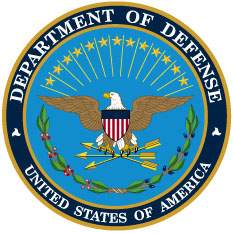Fri, Apr 01, 2011
Giant Cargo Planes Would Be Modified Into Flying Aircraft
Carriers For Foreign Markets
 ANN April 1st Special
Edition: An insider within the U.S. government,
speaking on condition of anonymity, has told Aero-News that there
are ongoing negotiations between the United States, Lockheed
Aerospace, Department of Defense, and a number of unnamed foreign
governments. These negotiations center on an unspecified number of
C-5 Galaxy aircraft currently in storage at AMARC at Davis-Monthan
A.F.B. in Tucson Arizona.
ANN April 1st Special
Edition: An insider within the U.S. government,
speaking on condition of anonymity, has told Aero-News that there
are ongoing negotiations between the United States, Lockheed
Aerospace, Department of Defense, and a number of unnamed foreign
governments. These negotiations center on an unspecified number of
C-5 Galaxy aircraft currently in storage at AMARC at Davis-Monthan
A.F.B. in Tucson Arizona.
A number of nations currently operate relatively short-range
fighters within their air forces and they are examining ways to
effectively extend the range of those aircraft without
modification. Aircraft such as the Northrop F-5 Freedom Fighter are
very cost-effective for many nations but they are very limited in
global reach. The insider stated that a number of "highly placed"
persons had remembered the parasite fighter concepts explored by
the USAF in the 1950's, which were deemed unpractical at the
time.
The concept being explored is rumored to be to convert some C-5
Galaxy aircraft into what would amount to a flying aircraft
carrier. Some foreign Air Forces are intrigued by the fact that the
not only does the C-5 have capabilities for aft cargo loading but
also forward loading in the nose. Feasibility studies are underway
to examine the capabilities of launching and recovering fighter
aircraft from the cargo deck of modified C-5's while they are in
flight. An arresting cable would not be required since the airspeed
of the C-5 can be matched to the F-5 with the airflow going
straight through the C-5 with forward and aft cargo doors open.

According to our insider, the proposal calls for
maintenance personnel to be restrained to the cargo deck during
launch and recovery operations but personnel restraint systems are
already in use by Loadmasters in currently fielded cargo aircraft.
Lockheed Aerospace is in the process of determining the changes in
aerodynamic characteristics when flying with the nose and tail
cargo doors open. "We think it'll work," said one engineer. "The
air simply passes through. We might have to re-engine the airplane
to get enough thrust to keep it flying with all the parasitic drag,
and move the cockpit so that the pilots can see. We expect it will
be some kind of fly-by-wire "battle bridge" on the cargo deck."
A side benefit will be the dispersal of aircraft in small
countries with a limited number airfields. In essence a portion of
a nation's air force can be on airborne alert 24/7. Flight testing
is scheduled to begin 1 April 2010 barring any complications and
approval of government agencies.
More News
Terminal Radar Service Area Airspace surrounding designated airports wherein ATC provides radar vectoring, sequencing, and separation on a full-time basis for all IFR and participa>[...]
Very High Frequency (VHF) The frequency band between 30 and 300 MHz. Portions of this band, 108 to 118 MHz, are used for certain NAVAIDs; 118 to 136 MHz are used for civil air/grou>[...]
“From approximately November 2021 through January 2022, Britton-Harr, acting on behalf of AeroVanti, entered into lease-purchase agreements for five Piaggio-manufactured airc>[...]
Also: Virtual FLRAA Prototype, IFR-Capable Autonomous A/C, NS-32 Crew, Golden Dome Missile Defense Bombardier announced that the first production Global 8000 successfully completed>[...]
Aero Linx: The 1-26 Association (Schweizer) The Association’s goal is to foster the helpfulness, the camaraderie, and the opportunity for head-to-head competition that is fou>[...]
 ANN's Daily Aero-Term (05.29.25): Terminal Radar Service Area
ANN's Daily Aero-Term (05.29.25): Terminal Radar Service Area ANN's Daily Aero-Term (05.30.25): Very High Frequency (VHF)
ANN's Daily Aero-Term (05.30.25): Very High Frequency (VHF) Aero-News: Quote of the Day (05.30.25)
Aero-News: Quote of the Day (05.30.25) Airborne 05.23.25: Global 8000, Qatar B747 Accepted, Aviation Merit Badge
Airborne 05.23.25: Global 8000, Qatar B747 Accepted, Aviation Merit Badge ANN's Daily Aero-Linx (05.30.25)
ANN's Daily Aero-Linx (05.30.25)




